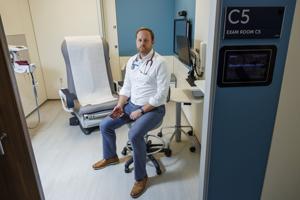Recent studies have demonstrated that music therapy can significantly alleviate pain for patients undergoing surgery or suffering from illness. As a result, hospitals and healthcare providers are increasingly incorporating live music performances into their pain management strategies. This innovative approach is gaining traction among medical professionals who recognize the psychological and physiological benefits of music in clinical settings.
Research conducted in **2023** has shown that patients exposed to music therapy experienced lower levels of pain and anxiety compared to those who did not receive musical intervention. This evidence has prompted hospitals across the **United States** and the **United Kingdom** to invite local musicians and singers to perform for patients, enhancing their recovery experience.
The Rise of Music in Healthcare
The integration of music therapy into healthcare is not a new concept, but its implementation has gained momentum recently. According to a report from the **American Music Therapy Association**, music therapy can help patients manage pain through various mechanisms, including distraction and emotional support. Health professionals are now utilizing this form of therapy to complement traditional pain management techniques.
In one notable instance, **Mount Sinai Health System** in New York has partnered with local musicians to provide live performances in patient recovery areas. Dr. **Michael D. Apkon**, CEO of **Tufts Medical Center**, emphasizes the importance of this approach, stating, “Music can serve as a powerful tool in the healing process, helping patients feel more comfortable and less anxious during their recovery.”
Music therapy’s impact is not limited to surgical patients. It has also shown promise in supporting individuals with chronic conditions, such as arthritis and cancer. A study published in the **Journal of Pain and Symptom Management** highlighted that patients receiving music therapy reported a **20% reduction** in pain levels after just a few sessions.
Implementing Music Therapy in Clinical Settings
Hospitals are adapting their environments to facilitate music therapy. **Royal Liverpool University Hospital** in the **UK** has introduced specialized music rooms where patients can relax and listen to their favorite tunes. These spaces have been designed to create a calming atmosphere, allowing patients to escape from the stresses of medical treatments.
Moreover, the benefits of music therapy extend beyond pain relief. Researchers have found that music can improve patients’ overall well-being, reduce stress levels, and enhance mood. This holistic approach has led to a growing number of healthcare institutions considering music as a vital component of comprehensive patient care.
As more evidence supports music therapy’s effectiveness, training programs for healthcare providers are being developed. Institutions are recognizing the need for staff to understand how to incorporate music into their practice effectively. This training will empower medical professionals to utilize music strategically, ensuring that patients receive the maximum benefit from this therapeutic approach.
In conclusion, the integration of music therapy into healthcare represents a significant advancement in pain management. As hospitals continue to embrace this innovative method, the potential for improving patient outcomes is promising. With ongoing research and collaboration between musicians and healthcare professionals, music therapy could become a standard part of treatment protocols, ultimately enhancing the patient experience during recovery.







